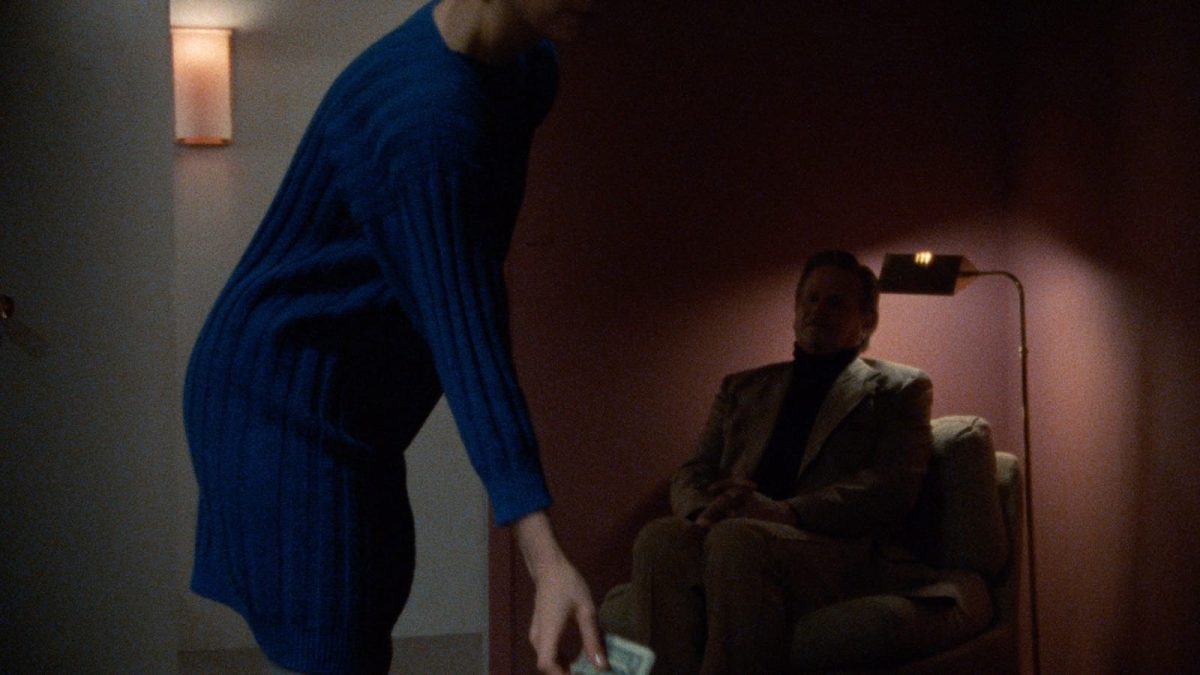
Molly (Louise Smith) gets up early, gives her girlfriend a good-morning kiss, wakes up her daughter, and prepares for the day. We see their casual, quiet minutia, basking in their domestic bliss. Then Molly gets on her bike and rides to her workplace: a small Manhattan brothel where she and a handful of other women work for flighty madam Lucy (Ellen McElduff). She applies modest makeup, puts on a business casual electric blue dress, and gets to work. In Lizzie Borden’s 1986 film Working Girls, newly restored and back in theaters, sex work is portrayed as an everyday 9–5.
Molly cycles through a diverse array of men, all with their own quirks and insecurities. In contrast to most other films about sex work, Working Girls is refreshingly casual. We see the women buy supplies, answer phones, apply contraception, and throw away used condoms. Between johns, Molly and her coworkers Gina (Marucia Zach) and Dawn (Amanda Goodwin) chat about their lives and goof on their boss. The film hints at an air of pomp around Molly in small doses, starting with her professional, cordial demeanor. Dialogue reveals she’s a Yale graduate. She only seems to like academic men, and has intellectual conversations with them in bed. She doesn’t act as if she’s better than her colleagues, but there’s a clear sense that she believes she doesn’t have to be there.

And then new girls start coming in, each deeply impacting both the tone of the film and Molly’s perception of her work. First there’s Debbie (Carla-Maria Sorey), who’s Black and keeps getting passed over for white girls. Then the evening shift begins, bringing subtle darkness to the film. The men become ruder and more forceful, Lucy more demanding. And Molly meets Mary and April, who both openly loathe the work. Mary (Helen Nicholas), a skittish single mother, is disgusted by the men and visibly uncomfortable with being alone with them. April (Janne Peters) is an older woman whose personal hardship has led her bitterly back to sex work. She clocks Molly’s feelings of superiority immediately, snapping back when Molly suggests quitting and starting a new career.
Borden knows how to make conflict look natural, avoiding melodrama by utilizing small moments of silence between barbs. Though Working Girls pokes fun at Lucy and most of the men who enter the brothel, there is no one villain. Instead it suggests that the villain is capitalism itself, and all the things we must do to survive. All the characters’ time on the clock could be spent pursuing their real passions and being with loved ones. There’s no moral value attached to coming or going; it’s all about how much the women can stand. Each has to set her own limits.
Working Girls is currently playing at IFC Center (323 6th Avenue, Manhattan), and will be opening at additional theaters soon.
0 Commentaires